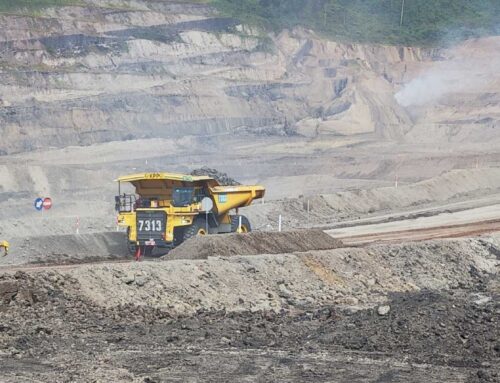Companies subject to the NFRD must implement the CSRD as of 2025 for the fiscal year 2024.
Companies covered by the CSRD are required to comply with the new European sustainability reporting standards developed for the occasion.
Internationally, the International Sustainability Standards Board (ISSB) has become the non-financial standard-setting body.
The International Organization of Securities Commissions (IOSCO) has called for the adoption of IFRS S.
2024 marks the implementation of new sustainability reporting standards that aim to make companies more resilient. How will ESRS (European sustainability reporting standards) and IFRS Sustainability 1 and IFRS Sustainability 2 (IFRS S1 and IFRS S2) standards impact your ESG reporting ?
Comparison of ESRS and IFRS S1 and S2 sustainability standards from a European perspective.
With a view to the international convergence of sustainability reporting and in order to strengthen the European Union’s objectives in terms of sustainable finance, the Corporate Sustainability Reporting Directive (CSRD) has replaced the Non-Financial Reporting Directive (NFRD). The Commission’s delegated regulation of 31 July 2023 setting out the first twelve ESRS sustainability reporting standards was published in the EU’s Official Journal on 22 December 2023.
The European CSRD directive will gradually impose the use of these ESG reporting standards on more than 50,000 European companies and 10,000 foreign companies, which will have to provide improved, formatted and audited non-financial reports each year that respect the principle of double materiality.
At the end of 2023, Positivéco presented in detail the thresholds defining the companies concerned by these obligations, the principle of double materiality and the first version of the ESRS in an article on the CSRD.
This year, the first companies concerned will be collecting the data needed to publish their first ESRS-compliant report in 2025. This inaugural phase applies to large European and foreign entities already subject to non-financial reporting under the NFRD, i.e. companies with more than 500 employees, a turnover in excess of €50m and/or a balance sheet total in excess of €25m.

Reminder of the 10 ESG thematic standards of the ESRS.
Five standards related to environmental issues
| ESRS E1 | Climate Change |
| ESRS E2 | Pollution |
| ESRS E3 | Water and marine resources |
| ESRS E4 | Biodiversity and ecosystems |
| ESRS E5 | Resource use and circular economy |
Four standards related to social issues
| ESRS S1 | Own workforce |
| ESRS S2 | Workers in the value chain |
| ESRS S3 | Affected communities |
| ESRS S4 | Consumers and end users |
One standard related to governance
| ESRS G1 | Business conduct |
Comparison of ESRS and IFRS S1 and S2 sustainability standards as seen from the rest of the world.
Internationally, the International Sustainability Standards Board (ISSB) has become the non-financial standard-setting body. In June 2023, the IFRS Foundation published two inaugural standards, IFRS Sustainability 1 (General Sustainability-related Disclosures) and IFRS Sustainability 2 (Climate-related Disclosures).
At the beginning of 2023, Positivéco analysed the first version of the IFRS S1 and IFRS S2 standards. We highlighted the acceleration in the integration of the non-financial dimension into companies’ financial communications.
As with IFRS accounting standards, the 168 jurisdictions that apply IFRS standards will have to decide whether or not to make IFRS S1 and IFRS S2 mandatory.
In order to ensure the consistency and comparability of non-financial information worldwide, in July 2023, the International Organization of Securities Commissions (IOSCO) called for the adoption of IFRS S standards. IOSCO is a major player in the global economy. Its 130 member jurisdictions represent more than 95% of the world’s securities markets.
As with ESRS, IFRS Sustainability will apply to annual reporting periods beginning on or after January 2024. Earlier application is permitted provided that both IFRS S1 and IFRS S2 are applied.
The two standards, ESRS and IFRS S1 and S2, aim to define a common language dedicated to sustainability issues.
The ISSB based its first two standards on the recommendations of the Task Force on Climate Related Financial Disclosures (TCFD).
Companies subject to the ESRS climate standard will, to a large extent, publish similar information to companies using the ISSB climate standard.
There are still slight differences in the approach to materiality under the two standards.
Comparison of ESRS and IFRS S1 and IFRS S2 as seen by ESG reporting professionals.
For reporting professionals, the two standards have many similarities. They differ in terms of the materiality of the information underlying sustainability reporting. This divergence will fade as the construction of a company’s sustainability goes beyond compliance with annual reporting obligations.
Points in common between ESRS and IFRS Sustainability S1 and S2.
-
What the ESRS and IFRS Sustainability have in common is that they are based on existing international standard-setting initiatives.
What the ESRS and IFRS Sustainability have in common is that they are based on existing international standard-setting initiatives.
Indeed, both ESRS and IFRS S1 and S2 aim to define a common language dedicated to sustainability issues.
On the European side, in order to contribute to the global effort to standardise ESG reporting, the European Commission has endeavoured to ensure a high level of alignment between its reporting standards and the Global Reporting Initiative (GRI). The GRI served as a reference for the development of the ESRS standard.
Similarly, the ISSB built its first two standards on the recommendations of the Task Force on Climate Related Financial Disclosures (TCFD), the standards of the Sustainability Accounting Standards Board (SASB) and the framework of the Climate Disclosure Standards Board (CDSB).
-
Chronologically, the ESRS and IFRS Sustainability standards were developed in parallel.
Chronologically, the ESRS and IFRS Sustainability standards were developed in parallel.
The European Commission, EFRAG and the ISSB have agreed to work together. Their discussions have ensured a very high degree of correspondence between the two standards.
As a result, companies subject to the ESRS climate standard will to a large extent publish similar information to companies using the ISSB climate standard. Entities that publish an ESRS-compliant sustainability report will, however, provide additional information. This information relates to ESG impacts of particular relevance to business partners, trade unions and social partners.
Points of divergence between ESRS and IFRS S1 and S2
There are still slight differences in the approach to materiality under the two standards.
IFRS Sustainability aims to satisfy investors’ needs in terms of non-financial data and adopts an approach based on financial materiality (outside-in).
The IFRS definition of materiality is therefore closer to financial materiality. The information to be provided is that which is likely to be useful to investors.
The impact of a company’s activities on the environment or society is taken into account indirectly, only in cases where this impact may affect an investor’s decision-making.
This standard is therefore based on the materiality analysis carried out by the company.
The ESRS are based on the principle of double materiality, and the impact of a company’s activities on sustainability factors is a key element of this reporting standard (inside-out).
However, the European Commission and the ISSB wish to optimise their degree of alignment so that companies complying with one of the two standards do not have to publish a different report to comply with the second.
To this end, EFRAG published two tables of equivalence between the ESRS and the IFRS Sustainability standards in November 2022.
The ISSB has not yet published a similar reconciliation table, but has established a dedicated working group of which EFRAG is a member.
How can we prepare for compliance of the sustainability report with the new ESG standards?
All the rules have not yet been established.
As a result, a great deal of ESG standardisation and harmonisation work remains to be done in 2024. In December 2023, the Board of Directors of the ISSB launched an update of the SASB standards to improve their interoperability with the GRI and the ESRS. These amendments should allow SASB to be used regardless of the jurisdiction of origin or the accounting principles applied by the entity. This decision follows a consultation launched by the ISSB in May 2023. The ISSB is encouraged to continuously monitor the alignment of SASB standards with developments in other standards. This will include the publication of the final version of the GRI and ESRS sector standards, which will provide a reporting framework for 40 separate sectors by 2026. The ISSB is committed to continuing to prioritise its alignment work, in particular with standards that are not only aimed at investors, such as the ESRS.
ESRS and IFRS Sustainability comparison tools to consult
To prepare their sustainability report in accordance with the ESRS and IFRS S1 and IFRS S2 standards, companies can consult :
- The ESRS and IFRS Sustainability equivalence tables
- EFRAG The IFRS Sustainability & TCFD equivalence table
- ISSB The resource centre for the application of ESRS
- EFRAG The educational document for the application of IFRS S1 and S2: Nature and social aspects of climate-related risks and opportunities
- IFRS The resource centre for the application of IFRS S1 and S2: IFRS Sustainability knowledge hub.
Need help to effectively integrate CSR into your business strategy? You’ve come to the right place.
Book a 20-minute strategy meeting. You’ll find out how to initiate and structure the approach while guaranteeing your chances of success.
About Positiveco
At Positivéco, we see new national and international CSR regulations as vectors for positive growth.
Our job: to improve the readability of your activities for better valuation.
Since 2009, we have been supporting financial institutions, public players, and listed and unlisted companies in the evaluation of their CSR policies, the production of their extra-financial reporting and the implementation of their climate investment and aid projects. Development.
Make an appointment today and find out how to meet the new requirements of economic transparency while serving the project of your company.









Contact us now!